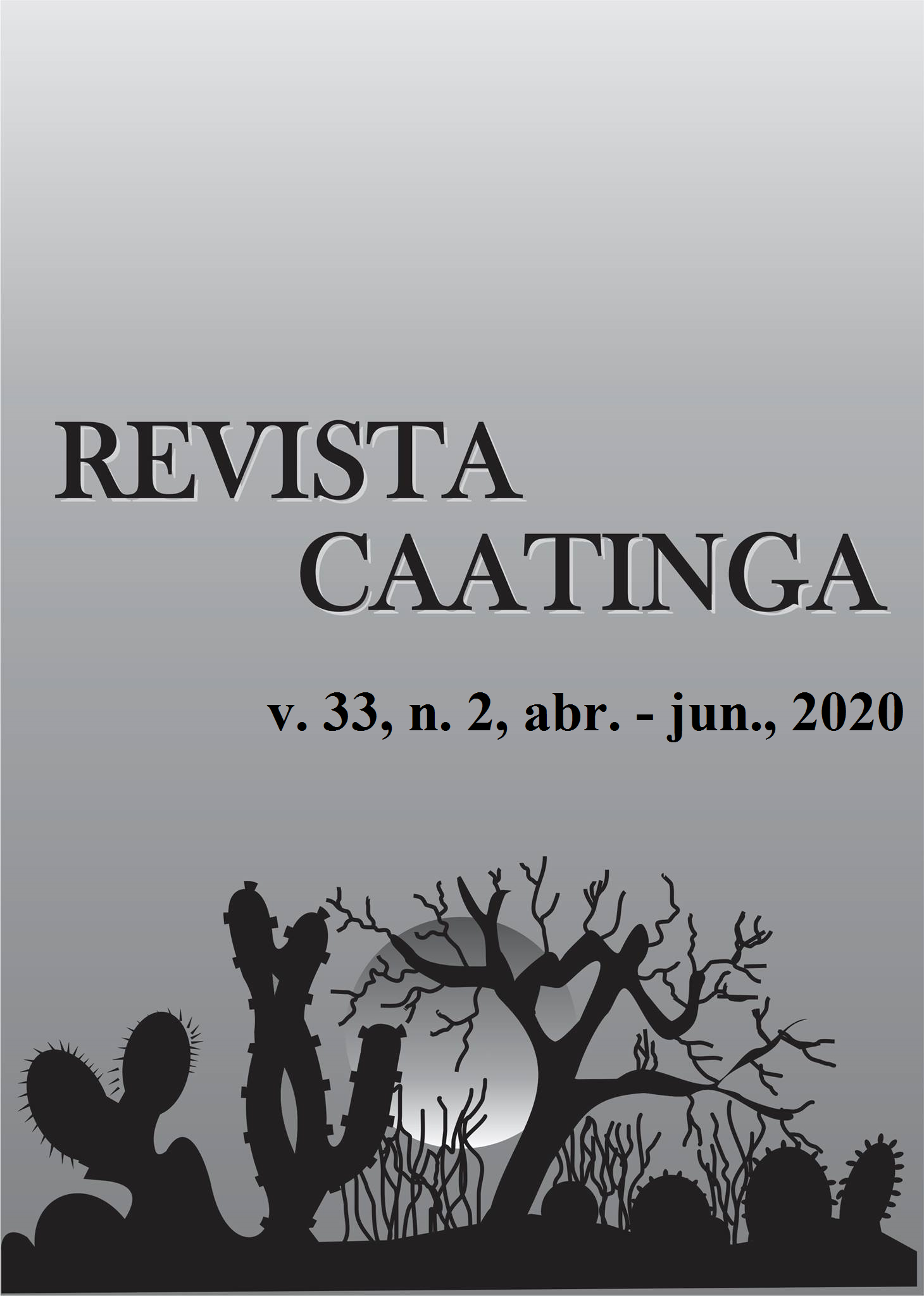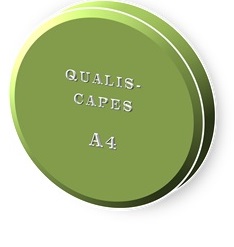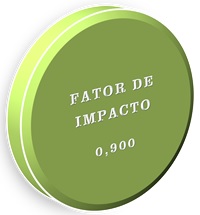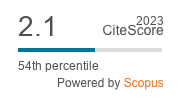PERFORMANCE OF SOYBEANS WITH THE APPLICATION OF GLYPHOSATE FORMULATIONS IN BIOSTIMULANT ASSOCIATION
DOI:
https://doi.org/10.1590/1983-21252020v33n210rcKeywords:
Algae extract. Ascophyllum nodosum. Glycine max. Herbicides. Productivity.Abstract
Glyphosate is the main herbicide used in the Roundup Ready® (RR®) soybean crop. However, the different salt and herbicide formulations available on the market can lead to crop intoxication. In this scenario, biostimulants appear as a promising alternative to mitigate the possible phytotoxic effects of glyphosate. Thus, the objective of this work was to evaluate the effects of different MC Extra® biostimulant doses associated with glyphosate formulations on the agronomic characteristics of a herbicide-tolerant soybean cultivar. Two experiments were conducted in the 2015/16 and 2016/17 seasons with three doses of MC Extra® (0.35, 0.70, and 1.00 kg ha-1) associated with six formulations of glyphosate: Glyphotal®, Roundup Original®, Roundup Ready®, Roundup WG®, Roundup Transorb®, and Zapp QI®, plus additional treatment without the use of the herbicide. In both experiments, we used 900 g e.a. ha-1 of glyphosate. The results showed that the highest dose of MC Extra®, in combination with the Roundup Original®, Roundup Ready®, and Roundup Transorb® formulations and 0,70 kg ha-1 of MC Extra® with Glyphotal® provided the highest grain yields. When used in conjunction with the herbicide, there is a need to increase the dose of MC Extra® to obtain higher soybean yields.
Downloads
References
AGROFIT, AGROFIT. Sistema de agrotóxicos fitossanitários. Ministério da Agricultura Pecuária e Abastecimento, 2012.
ANDRADE, C. L. L. et al. Bioestimulantes derivados de Ascophyllum nodosum associados ao glyphosate nas características agronômicas da soja RR®. Revista Brasileira de Herbicidas, 17: e592, 2018.
BINSFELD, J. A. et al. Uso de bioativador, bioestimulante e complexo de nutrientes em sementes de soja. Pesquisa Agropecuária Tropical, 44: 88-94, 2014.
BOMTEMPO, A. F. et al. Influência de bioestimulantes e nutrientes na emergência e no crescimento inicial de feijão, soja e milho. Revista Brasileira de Milho e Sorgo, 15: 86-93, 2016.
BOTT, S. et al. Glyphosate-induced impairment of plant growth and micronutrient status in glyphosate-resistant soybean (Glycine max L.). Plant Soil, 312: 185-194, 2008.
CARVALHO, L. B. Herbicidas. 1. ed. Lages, SC: EDITADO PELO AUTOR, 2013. 62 p.
COBB, A. H.; READE, J. P. H. Herbicides and Plant Physiology. 2a. ed. London: Wiley-Blackwell, 2010. 296 p.
CRAIGIE, J. S. Seaweed extract stimuli in plant science and agriculture. Journal of Applied Phycology, 23: 371-393, 2011.
DU JARDIN, P. Plant biostimulants: Definition, concept, main categories and regulation. Scientia Horticulturae, 196: 3-14, 2015.
MACKINNON, S. L. et al. Improved methods of analysis for betaines in Ascophyllum nodosum and its commercial seaweed extracts. Journal of Applied Phycology, 22: 489-494, 2010.
MARTINS, D. et al. Ação de adjuvantes na absorção e translocação de glyphosate em plantas de aguapé (Eichhornia crassipes). Planta Daninha, 27: 155-163, 2009.
MARTYNENKO, A. et al. Thermal imaging of soybean response to drought stress: the effect of Ascophyllum nodosum seaweed extract. Springerplus, 5:1393, 2016.
MEROTTO JR., A.; WAGNER, J.; MENEGUZZI, C. Effects of Glyphosate and foliar application of micronutrients in 39 transgenic soybean. Bioscience Journal, 31: 499-508, 2015.
OSIPE, J. B. et al. Seletividade de aplicações combinadas de herbicidas em pré e pós-emergência para a soja tolerante ao glyphosate. Bioscience Journal, 30, 623-631, 2014.
PETTER, F. A. et al. Effect of glyphosate and water stress on plant morphology and nutrient accumulation in soybean. Australian Journal of Crop Science, 10: 251-257, 2016.
PINTO, C. C. et al. Effect of dosage and times of application of glyphosate on yield and qualitative in soybean RR. Revista de Ciências Agrárias, 39: 310-317, 2016.
POVERO, G. et al. Systematic approach to discover and characterize natural plant biostimulants. Frontiers in Plant Science, 7: 1-9, 2016.
PROCÓPIO, S. O. et al. Plantio cruzado na cultura da soja utilizando uma cultivar de hábito de crescimento indeterminado. Revista de Ciências Agrárias, 56: 319-325, 2013.
SANTOS, A. A. M. et al. Substância húmica na redução da fitotoxidade dos herbicidas Roundup Ready + Lactofen na cultura da soja. Revista Tecnologia & Ciência Agropecuária, 9: 35-41, 2015.
SHARMA, H. S. S. et al. Plant biostimulants: a review on the processing of macroalgae and use of extracts for crop management to reduce abiotic and biotic stresses. Journal of Applied Phycology, 26: 465-490, 2014.
SILVA, A. G. et al. Inoculação de sementes de milho safrinha com Azospirillum e aplicação de nitrogênio em cobertura. Revista Brasileira de Milho e Sorgo, 14: 358-370, 2016.
TAIZ, L. et al. Fisiologia e desenvolvimento vegetal. 6. ed. Porto Alegre, RS: ARTMED, 2017. 888 p.
TANDON, S.; DUBEY, A. Effects of Biozyme (Ascophyllum nodosum) biostimulant on growth and development of soybean [Glycine max (L.) Merill]. Communications in Soil Science and Plant Analysis, 46: 845-858, 2015.
VAN OOSTEN, M. J. et al. The role of biostimulants and bioeffectors as alleviators of abiotic stress in crop plants. Chemical and Biological Technologies in Agriculture, 4: 1-12, 2017.
VIEIRA, B. C. et al. Influence of airspeed and adjuvants on droplet size distribution in aerial applications of glyphosate. Applied Engineering in Agriculture, 34: 507-513, 2018.
VELINI, E. D. et al. Glyphosate uso Sustentável. Botucatu, SP: FEPAF, 2012. 202 p.
VRIES, B. D.; FEHR, W. R. Impact of the event for glyphosate tolerance on agronomic and seed traits of soybean. Crop Science, 51: 1023-1027, 2011.
WALLY, O. S. D. et al. Regulation of phytohormone biosynthesis and accumulation in Arabidopsis following treatment with commercial extract from the marine macroalga Ascophyllum nodosum. Journal of Plant Growth Regulation, 32: 324-339, 2013.
ZOBIOLE, L. H. S.; KREMER, R. J.; CONSTANTIN, J. Glyphosate effects on photosynthesis, nutrient accumulation, and nodulation in glyphosate‐resistant soybean. Journal of Plant Nutrition and Soil Science, 175: 319-330, 2012.
Downloads
Published
Issue
Section
License
Os Autores que publicam na Revista Caatinga concordam com os seguintes termos:
a) Os Autores mantêm os direitos autorais e concedem à revista o direito de primeira publicação, com o trabalho simultaneamente licenciado sob a Licença Creative Commons do tipo atribuição CC-BY, para todo o conteúdo do periódico, exceto onde estiver identificado, que permite o compartilhamento do trabalho com reconhecimento da autoria e publicação inicial nesta revista, sem fins comerciais.
b) Os Autores têm autorização para distribuição não-exclusiva da versão do trabalho publicada nesta revista (ex.: publicar em repositório institucional ou como capítulo de livro), com reconhecimento de autoria e publicação inicial nesta revista.
c) Os Autores têm permissão e são estimulados a publicar e distribuir seu trabalho online (ex.: em repositórios institucionais ou na sua página pessoal) a qualquer ponto antes ou durante o processo editorial, já que isso pode gerar alterações produtivas, bem como aumentar o impacto e a citação do trabalho publicado (Veja O Efeito do Acesso Livre).







